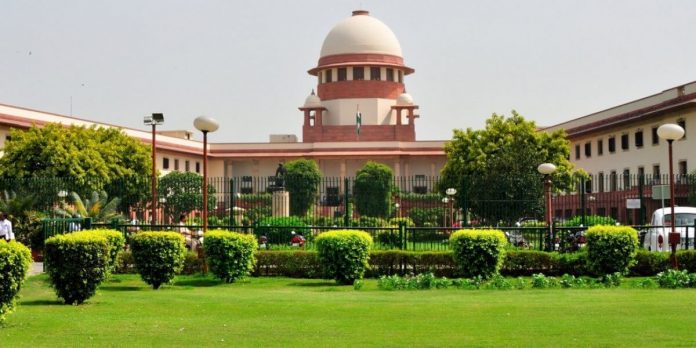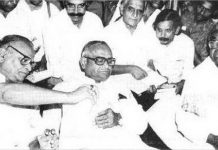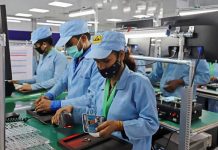This article is written by Bhumika Dandona, from the School of Law, Sushant University (erstwhile Ansal University), Gurgaon. In this article, she deals with the necessity of wearing masks and judicial pronouncements by the Indian courts. It concludes by analyzing the effectiveness of wearing masks, now that the vaccines have arrived on the scene.
Table of Contents
Introduction
With the advent of the novel coronavirus, there has been a change in the ways people lead their lives. The sporting of masks is one of such changes that has been met with a lot of debate. The government and medical authorities have been time and again urging people to wear masks every time they step out of their houses. But some don’t seem to understand the significance of this practice. Several incidents of individuals engaging in arguments on roads and other places with the police over this matter have come to light in the past few months.
As we have seen, wearing masks has become a problem to such an extent that people are taking it to the courts. While some have expressed their discontent regarding the same, others have argued in favour of it. Hence, even a thing like it, small and simple to apprehend, is no exception to judicial intervention. The second wave of the coronavirus is having a devastating impact on the country, yet a problem like it continues to exist. This article begins by talking about why masks have become the ‘new normal’ and then proceeds to the judgments given by the courts in this respect. It concludes by discussing the changes in the position of wearing masks, now that the vaccines have entered the scene.
Necessity of a mask in the era of COVID-19
Masks work as a shield against the virus. It may be a nuisance to several people, but it is necessary to protect oneself and others from getting infected by the deadly disease. According to medical experts, whenever a person who is possibly a victim of the virus sneezes, coughs or even breathes, they can transmit the virus through respiratory droplets to others. What is here to understand is that experts earlier used to claim that these droplets can travel up to six feet from their source. It means that close contact with the infected individuals can spread the virus from person to person.
But with the recent changes in the SARS-CoV-2 transmission guidelines made by the US Centre for Disease Control and Prevention (CDC), the experts have updated that the virus can also transmit through air. If an infected person, for example, goes out undetected and sneezes, the particles of the virus can survive in the open atmosphere for some time. Healthy people might inhale those particles and not only fall victim to the virus, but can also pass it on to others. Wearing a mask breaks this transmission chain, preventing the virus from spreading any further, pretty much explaining why it is crucial to wear them.
Coronavirus is a highly contagious disease and can cost people a lot, even their lives. It is particularly true for elderly individuals, for they are at risk of contracting the virus the most. One of the few reasons that support this statement is that older people tend to already have other existing health issues, such as diabetes, blood pressure problems, cancer, etc. As a result, they have lower immunity than the youth, which makes them more vulnerable to the deadly effects of the virus. Doctors also say the same for children and young adults with any morbidity, for they too do not have the potential immunity to ward off the disease. Apart from that, many people have been, and are being, affected by what is called the ‘Black fungus’ and the ‘White fungus’. These are vicious afflictions that occur during the period of recovery from COVID-19. Black fungus and white fungus, in most cases, cause blindness or death. So, simple practices like wearing masks can help prevent all of it and save millions of lives.
Significant judicial pronouncements concerning wearing of a mask
When the pandemic hit India last year, the Central Government made it necessary for people to wear masks while venturing out of their homes. The government went a step ahead and furnished an order making it compulsory to wear masks even when travelling in vehicles, alone or along with others. It is these specific issues that caused the involvement of courts in the matter. Over the past few months, there have been several cases wherein the courts addressed the same in different ways. But more or less, all of them gave similar verdicts. Following are the most recent and significant ones in this context:-
The State of Gujarat v. Vishal S. Awtani (2020)
Facts of the case
In this case, the Supreme Court dealt with a petition against the judgment of the Gujarat High Court. Shri Vishal S. Awtani, the petitioner in person, had filed a petition in the Gujarat High Court to direct the State Government to increase the fine for not wearing the mask in public places. It was primarily because of the increasing number of coronavirus cases in Vadodara, Ahmedabad, Surat and Rajkot. He prayed that the Court increase the fine to Rs.2000 in these cities and Rs.1000 in the rest of Gujarat, to ensure that people do not violate the rules. However, despite this order of the court, there was no improvement in the prevailing situations.
Thus, Awtani filed public interest litigation, requesting the court that in addition to the fine imposed, issuing such instructions that require those breaching the rules to perform community service would be appropriate. He submitted that it would undoubtedly work as a deterrent and ensure a stricter implementation of wearing masks. The court, upholding the petitioner’s submission, stated that individuals found breaching rules have to do community service. The government has to come up with a policy mandating the same. The State Government then appealed against this decision to the Supreme Court by Special Leave Petition.
Decision of the court
The Supreme Court stayed the order of the High Court. It stated that it would harm the health of the violators, exposing them to the virus and, in turn, worsening the already grim situation. The court, however, also asserted that wearing masks is compulsory and any violations would attract penal consequences.
Deepak Agarwal v. Union Of India & Ors. (2021)
In this case, the High Court of Delhi decided on four writ petitions in a single judgment. Although filed separately, they had similar facts and issues, with just a few differences.
Casewise Single-judge facts
W.P.(C) 6595/2020
In September 2020, Saurabh Sharma, a lawyer based in Delhi, filed a petition in the Delhi High Court over a fine of Rs.500 for not wearing the mask while he was driving to his office. He stated that a police constable stopped him and demanded that he pay the fine for not following the protocol. The petitioner challenged the imposition of such a fine, stating that his car was not a public place and, therefore, wearing or not wearing the mask was to his discretion. He further submitted that the authorities were levying penalties without any force of law and requested the Court for compensation.
W.P.(C) 8455/2020
The petitioner was driving his way to the Tis Hazari Court when the police stopped him near the Civil Lines. The police asked him to pay Rs.500 fine not wearing a mask since it was dangling from his ear and, thereby, violating the Delhi Epidemic Diseases (Management of COVID-19) Regulations, 2020. The petitioner sought quashing of the same, stating that a private vehicle does not constitute a public place.
W.P.(C) 8588/2020
While crossing the Vikas Marg locality near Laxmi Nagar Metro Station in his car, the petitioner, a practising advocate, was stopped by the police officials who asserted that he had to pay a fine of Rs.500 for not wearing the mask. The petitioner stated that charging people for not following the rules when in their private space is unjustifiable. Accordingly, he appealed to the court for a refund.
W.P.(C) 9408/2020
In October 2020, the petitioner was travelling in his car with his wife when civil defence personnel forced him to stop the vehicle. The personnel told him that he was wearing just a scarf over his mouth and nose instead of a mask. Henceforth, he was liable to pay a fine of Rs.500 for breaching the safety regulation enforced under the Regulations of 2020. Apart from a refund, the petitioner also sought compensation of Rs.10,00,000 for the alleged harassment and humiliation caused to him.
Issues involved
Primary issues that the court came across in all the petitions were as follows:-
- Whether wearing a mask in private vehicles is compulsory or not.
- Whether the fines imposed on petitioners were valid or not.
- Whether or not compensation or refund is to be granted.
Observations and final decision of the court
The single-judge bench of the High Court, comprising Justice Pratibha M. Singh asserted that a private vehicle moving in public space constitutes a ‘public place’. It referred to the interpretation of the term by the Supreme Court in the case Gaurav Jain v. Union of India (1997). The Apex Court stated therein that ‘public place’ does not restrict itself to just public properties. It can also include private properties within its ambit. Thus, the single bench held that even while travelling alone in cars, people are at risk of contracting the virus. They may exit the car for visiting hospitals, marketplaces, streets, etc. They may roll down the windows or buy things while waiting at the red light. Also, there may be other persons present along with them.
Even if just one individual occupies it, wearing a mask is compulsory. It is a necessary measure for containing the spread of Covid-19, and one cannot deem their vehicles to be private space since they can easily expose themselves to the virus, although they are lone travellers. The single bench further asserted that the fines imposed on petitioners, issued by the duly authorised officers, were valid. Henceforth, it dismissed all the writ petitions in this light. Accordingly, it turned down the pleas for compensation or refund as well.
Conclusion
Although the medical departments have successfully developed vaccines for treating the Coronavirus, they have also warned that it is just a preventative measure. Vaccines can only reduce the chances of having grave health consequences as a result of the dreaded infection. Thus, it means that people can still contract the virus even after getting vaccinated. They will have to perform all the cautious practices they have been carrying out all along.
But there has been a slight change in the same, that is people are now advised to double mask themselves, keeping in view the dangerous second wave of the coronavirus that has also brought with it the epidemic of fungus. It is why the courts have been making decisions favouring those who pleaded for strict actions against individuals not wearing masks. The only problem they have faced regarding the same is what and how to execute the measures for ensuring that people obey the protocol. It is so much so that the courts have had to interfere in each other’s verdicts. Either this or they took too much time to conclude the cases pending before them. The previously mentioned judgments support this statement quite clearly.
References
- https://www.hindustantimes.com/india-news/those-not-wearing-masks-violating-other-citizens-fundamental-rights-sc/story-t3bnVimH31lMvvjlbskDeK.html
- https://www.livelaw.in/top-stories/face-mask-community-service-gujarat-hc-stay-supreme-court-166744
LawSikho has created a telegram group for exchanging legal knowledge, referrals, and various opportunities. You can click on this link and join:
 Serato DJ Crack 2025Serato DJ PRO Crack
Serato DJ Crack 2025Serato DJ PRO Crack











 Allow notifications
Allow notifications


